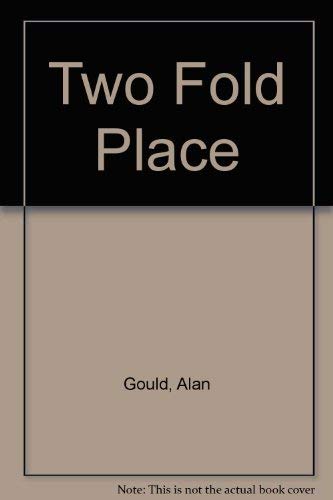
- Free Article: No
- Contents Category: Poetry
- Review Article: Yes
- Online Only: No
- Custom Highlight Text:
The ways of poetry are many but sometimes, as it turns out, they are simply oppositional. These two new volumes of poetry from Angus & Robertson could easily have been produced as the occasion for some compare-and-contrast parlour game. The first, and continuing, thing to be said about them is that Gould is strong on artistic form whereas Owen is strong on life. The harder question to ask about any writer is whether it is better to be good at forms or to be full of life. Both, you will say, of course; but then we can’t have everything.
- Book 1 Title: Boy with A Telescope
- Book 1 Biblio: Angus & Robertson, p. 71, $9.95
- Book 2 Title: The Twofold Place
- Book 2 Biblio: Angus & Robertson, 65p., $9.95 pb.
- Book 2 Cover Small (400 x 600):

- Book 2 Cover (800 x 1200):

- Book 2 Cover Path (no longer required): images/1_SocialMedia/2021/Jan_2021/META/319idWEZKzL.jpg
Owen’s book contains many poems which strive to open themselves to a spirit of liveliness, and to other people’s lives in particular. short story writer. She is not a fabulist, not an inventor of great metaphors (though the perfectly managed power of ‘Poppies’ is essentially metaphorical), but has a slightly rambling prose-like concern for getting a lot of things down on paper. The sustained quality of her two excellent poems, ‘Easter Sunday’ and ‘Ice-Oh!’, both in rhyming couplets, suggests that she should trust herself to containing forms more often, rather than trusting her talent to kinds of free verse with a scattering of rhymes and a downbeat ending. ‘At the Terminal’ is another excellent poem in which the short-line couplets pace and control the rich sympathy with which a waiting old woman is depicted. At the end the poem becomes more literary just when we need it to:
She looks up, sighs
each crease of her face
attesting their weary course,
and all her cupped self unspent,
transcendent with their intent,
bitter-sweetens the air
like myrrh from an old jar.
As well as being attentive to the gestures of old people, children and circus folk, Owen has a hunger for odd facts, as her intriguing suite of pieces about different insects makes clear. She can, in one poem, tell a powerful story from the Hungarian struggle of 1956. Occasional patches of speculation sound a little like R.D. Fitzgerald, but most often she gathers salient details, strings them along in apposition, begins poems with dangling phrases, hankers after physical actions, tries to make the -lines stumble and bounce.
Although she is at her most plangent in some crucially placed poems which seek to approach a dead brother (especially in the daringly phrased ‘Once upon a Time’, which does not quite come off but is well worth it), Owen’s poetry reaches its maximum fullness, in my judgement, when it celebrates a suite or procession of women made ‘In God’s Image’. Some of these poems, too, are formally rather loose, but ‘Swimming Instructor’, ‘Young Woman Gathering Lemons’ and ‘Madwoman in the Gardens’ are among the poems which established Owen as a poet whom none of us can afford to neglect. She is an object-lesson into poetry. ‘Swimming Instructor’, above all, displays a wit which is perfectly balanced and funny without chilling or diminishing its subject:
The lesson done, they sigh and look away
from the bosom by Rubens under the shirts by Sportsgirl,
and that smile by da Vinci, half-innocent of it all.
Alan Gould, an established, polished writer, knows very well what he’s doing. Forms, shapes, genres come naturally to him. He can write a handsomely Borges-like monologue for Harold Godwinsson, make Standard Habbie bounce along for three pages and devise a discursive mode which will meander elegantly through verse epistles to several people. His two circus poems make it immediately plain how much less concerned he is than Owen in the mimetic here-and-now, how much more interested he is in a shapely dance of concepts. Unlike her, he commonly brings a poem to a resonant, even an epigrammatic ending like ‘The barman whispers that your time has come’ or ‘In hell you live already, we reply.’
The poems in The Twofold Place, then, have plenitude, roundedness, style and a capacity for abstraction which also has a feeling of detachment about it., A suite of seven poems about the poet’s schooldays strike me as the weakest things in the book, being the kind of thing his verse renders least interesting. Such conceptually tight, even eccentric, poems as ‘Now’, ‘Day’ and ‘Chisel’ are perhaps the best things here, although there is a distinctive voice of weaving cogitation audible in the verse letters. It sounds like a cross between Auden, Peter Steele and the Duino Elegies. It can talk about cats, history, woodwork or the conversation of Les Murray. It lacks grit and salt yet but is an interesting mode which Gould has at his command, waiting for a suitable theme to come and fill it out.


Comments powered by CComment